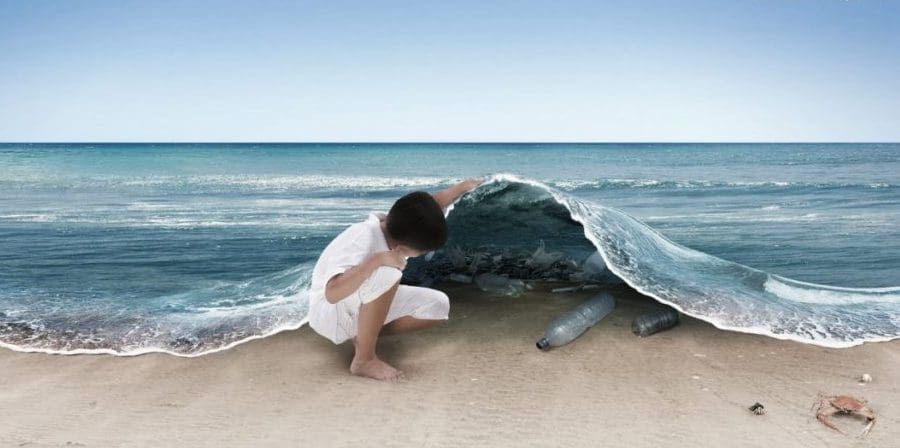A new company based in Chile has developed Solubag, a ‘plastic’ bag that dissolves in water. Their bags work just as well as traditional plastic bags for carrying item around, but they have several major advantages.
If you love the open water, then you are probably concerned about the problem of plastic waste. We use so many different types of disposable plastics that find their way into the oceans. Once these plastics reach the ocean they disintegrate in the sun.
This turns them into microplastics which can then be ingested by sea animals, poisoning them and the rest of the food chain. Many items like plastic bags can be swallowed by sea creatures before they break down, again causing untold damage to the animals and the ecosystem.
Fortunately, with some great innovation, a new company based in Chile has developed Solubag, a ‘plastic’ bag that dissolves in water. Their bags work just as well as traditional plastic bags for carrying item around, but they have several major advantages.
These bags are not made using petroleum products. That means their production does not use up the limited amount of crude oil we have and does not lead to the increased release of hydrocarbons into the environment.
The really big feature of these bags though in terms of protecting our seas and oceans is the fact that they are completely soluble in water. This means that within five minutes of entering the water they are fully dissolved. Removing the chance of an animal accidentally ingesting the bag, as a result of mistaking it for food.
This new material is based on limestone. Some clever chemistry has allowed the inventors to produce a material that is based on the plastics we know and ‘love’, but that does not contain any of the nasty chemicals found in plastics. This means that when the bags dissolve into the water there are no contaminants being released.
After all many coastlines feature limestone cliffs that erode into the oceans with no ill effects on the environment. All that ends up in the ocean is a little bit of carbon. This means that the water these bags are dissolved into is actually safe for human consumption, we wouldn’t recommend, I doubt it tastes that good, but it is reassuring to know that we are not going to be damaging the food chain with the product.
The really big feature of Solubag though in term of protecting our seas and oceans is the fact that the bags are completely soluble in water.
We’ve all heard about the trash islands that have formed in various parts of the oceans and how they are many times bigger than some countries. All indications are that these trash islands are going to continue to grow at an exponential rate. Solubag is a fantastic step towards a world where we are protecting our oceans and the wildlife they contain.
Even though the use of plastic bags is being curtailed in many places, we are still using around 160,000 plastic bags per second worldwide. Most of them don’t get recycled. It’s probably less than 1 in 200.
Solubag would mean that it is a simple thing to dispose of these bags responsibly, you just pop them into a bowl of water and then rinse the water down the sink 5 minutes later, so fuss no muss. It’s so simple that people might actually do it! How much better would it be to sail in beautiful blue oceans rather than through islands of trash.





Did anyone bother to check what temperature the water is in their claims or get a sample of the ‘water’ … they have maybe similar bags in Indonesia … will dissolve into something in very hot water .. in cold ocean temp water they just get rubbery wet like a used condom …
They might be good , but independent tests now by someone with a financial interest might be a very good idea , right ?
Since only about 10% of all of the available oil is actually pumped from the earth, with the remaining 90% too costly to extract, it’s a weak argument to say there is a ” limited ” amount of oil. Oil being a product that is continuously produced by Earth’s natural processes.
can we purchase these bags now?